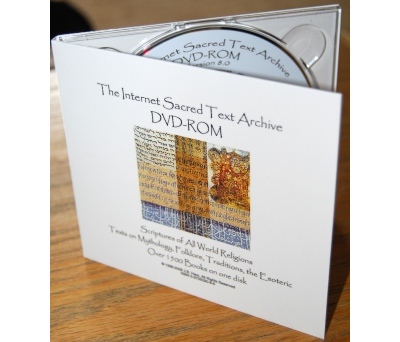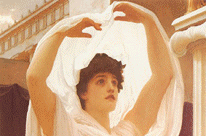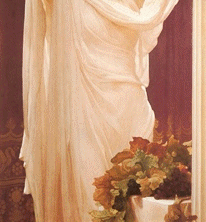Sacred-texts home
Taoism
Buddhism
I Ching
Journal Articles: Chinese Religion
OCRT: Confucianism
Buy CD-ROM
Buy books about Confucianism

|
Confucianism and Traditional Chinese beliefs
|
The Chinese Classics
These are key texts of Confucianism, the traditional state religion of
feudal China.
These are some of the few Chinese texts which
survived a disasterous book-burning in 213 B.C.E.
by the Emperor Ch'in Shih Huang.
Confucian Canon
Five Classics
Sacred Books of China
Traditional Chinese Beliefs
Although three of four of these books
are traditionally attributed to Confucius (K'ung-tzu, 551-479 B.C.E.)
it has been established that
he did not write a single word of them; they were written down by his
students after his death.
The Analects come closest to an actual exposition of his philosophy.
These works were put into their present form by Chu Hsi in the
late twelfth century C.E.
These four books were required reading in order to
pass the civil service exminations, (started in 1315),
which were the gateway to employment in the Imperial bureaucracy.
The translations are by James Legge,
from his 'Chinese Classics' series.
Works traditionally attributed to Confucius, but of uncertain authorship,
have an asterisk following his name.
 The Confucian Canon in Chinese and English
The Confucian Canon in Chinese and English
Confucius, tr. James Legge [1893]
Legges' translation of the works of Confucius in English and Chinese in one file.
To view this file properly your browser must be Unicode enabled.
 Confucian Analects (Lun Yü)
Confucian Analects (Lun Yü)
Confucius, tr. James Legge [1893]
The Analects were a collection of sayings written down by Confucius' students in the period approximately seventy years after his death.
 Mencius
Mencius
Mencius, tr. James Legge [1895]
The second book in the Confucian canon, the Meng-tzu, is named
after its author, also known as Meng K'o or Mencius (371-289 B.C.E.).
 The Great Learning (Ta Hsüeh)
The Great Learning (Ta Hsüeh)
Confucius*, tr. James Legge [1893]
The third book in the Confucian canon. Literally, 'Education for Adults'.
Written between 500 BCE and 200 BCE.
 The Doctrine Of The Mean (Chung Yung)
The Doctrine Of The Mean (Chung Yung)
Confucius*, tr. James Legge [1893]
More mystical than the other Confucian classics, the date of composition of this text is unknown.
The complete text of the six-part Sacred Books of the East 'Sacred Books of China' series:
 Sacred Books of the East, Volume 3; the Shû King, Shih King and Hsiâo King.
Sacred Books of the East, Volume 3; the Shû King, Shih King and Hsiâo King.
by James Legge [1879]
The Book of Historical Records, Book of Odes, and Book of Filial Piety
 Sacred Books of the East, Volume 16; the I Ching
Sacred Books of the East, Volume 16; the I Ching
by James Legge [1899]
The famous Chinese oracle book, one of the oldest surviving sacred texts.
 Sacred Books of the East, Volume 27; The Lî Kî, Part I
Sacred Books of the East, Volume 27; The Lî Kî, Part I
by James Legge [1885]
Book of Rites, part one.
 Sacred Books of the East, Volume 28; The Lî Kî, Part II
Sacred Books of the East, Volume 28; The Lî Kî, Part II
by James Legge [1885]
Book of Rites, part two.
 Sacred Books of the East, Volume 39; Taoist texts, vol. 1; Lao-tse; Chuang-tzu part I.
Sacred Books of the East, Volume 39; Taoist texts, vol. 1; Lao-tse; Chuang-tzu part I.
by James Legge [1891]
 Sacred Books of the East, Volume 40: Taoist texts, vol. 2; Chuang-tzu part II.
Sacred Books of the East, Volume 40: Taoist texts, vol. 2; Chuang-tzu part II.
by James Legge [1891]
Additional translations
 The Book of Poetry
The Book of Poetry
by James Legge [1876]
The complete Legge translation of the Shih Ching, the Book of Odes
 The Book of Odes
The Book of Odes
by L. Cranmer-Byng [1908]
A selection of ancient Chinese poetry from the Shih Ching.
 More Translations from the Chinese
More Translations from the Chinese
by Arthur Waley [1919]
A collection of translations of ancient Chinese poets by a leading scholar.
Four of the 'Five Classics' of Chinese have survived to our day.
These are links into the above entries:
 The Shu Ching
The Shu Ching
The Book of Historical Records.
This text describes events dating back to the third millenium B.C.E.,
and was written down during the Han dynasty (23-220 C.E.).
 The Shih Ching
The Shih Ching
The Book of Odes.
This contains poems dating back to 1000-500 B.C.E.
 The I Ching
The I Ching
The Book of Changes.
Dating to approximately 3000 B.C.E., this famous oracular book
is one of the oldest sacred texts in the world.
 The Li Ki Part I
The Li Ki Part I
 The Li Ki Part II
The Li Ki Part II
The Book of Rites.
This text describes Chinese religious practice from the eighth to the
fifth century B.C.E.
The fifth classic (which we don't currently have translation
of at this site) is the Spring and Autumn Annals, the Ch'un Ch'iu.
There was also a sixth classic, the Classic of Music (the Yüeh Ching),
which was lost.
 The Hsiao Ching
The Hsiao Ching
The Book of Filial Piety, from SBE 3.
 The Book of Filial Duty
The Book of Filial Duty
by Ivan Chen [1908]
A translation of the Hsiao Ching, a classic text which defines the web of Confucian social relationships.
Other Books
 A Feast of Lanterns
A Feast of Lanterns
by L. Cranmer-Byng [1916]
A collection of classic Chinese poetry.
 The Ethics of Confucius
The Ethics of Confucius
By Miles Menander Dawson [1915]
A study of the profound ethical message of the Confucian texts.
 Confucianism and Its Rivals
Confucianism and Its Rivals
By Herbert Allen Giles [1915]
The rise of Confucianism, and the changing role of religion over five millennia of Chinese history.
 The Shundai Zatsuwa (A Japanese Philosopher)
The Shundai Zatsuwa (A Japanese Philosopher)
By Kyuso (Muro Naokiyo),
translated by George William Knox [1892]
An account of Japanese Neo-Confucian thought.
 Excerpts from Ssuma Ch'ien,
Excerpts from Ssuma Ch'ien,
translated by Herbert J. Allen [1894-5]
This section includes texts about traditional Chinese beliefs and other
texts about Chinese culture.
 Sacred Places in China
Sacred Places in China
by Carl F. Kupfer [1911]
A tour of Chinese sacred locations, including a visit with the Taoist Pope.
 Myths and Legends of China
Myths and Legends of China
by Edward T.C. Werner [1922]
Traditional Chinese mythology, legends, history and lore.
 The Art of War
The Art of War
Sun Tzu, tr. by Lionel Giles [1910]
The Chinese classic of military strategy infused with Taoism.
 The Art of War
The Art of War
Sun Tzu, tr. by Lionel Giles [1910]
[text only]
 Feng Shui
Feng Shui
by Ernest J. Eitel [1873]
A short monograph about Chinese geomancy.
 Chinese Occultism
Chinese Occultism
by Paul Carus [1907]
Elements of the ancient Chinese theory of the universe.
 Chinese Buddhism
Chinese Buddhism
by Joseph Edkins [1893]
A comprehensive discussion of Chinese Buddhism. Includes material on Confucian, Taoist and traditional Chinese belief systems.

 More Translations from the Chinese
More Translations from the Chinese





